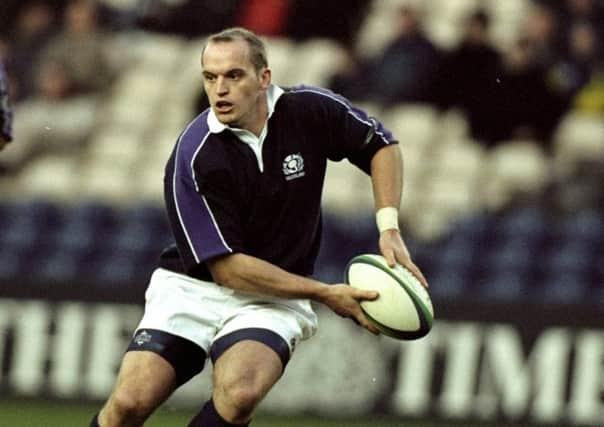Allan Massie: Russell as important to Scots as Townsend in his pomp


Winning today is vital. Lose your first match of the tournament and you are on the back foot straightaway and, if that first match is at home, you are in trouble. Some, looking at the teamsheet may say we’re not far from trouble already: no Sean Maitland, no Jonny Gray, no John Barclay, no Hamish Watson. That’s a big chunk out of what might be our first-choice team – even before you add the names of Duncan Taylor, Richie Gray, Fraser Brown, the Horne brothers and the brothers Fagerson. Well, all countries have players absent injured, and not all those listed would be in Scotland’s starting XV.
One way of considering a team is to ask which player they would miss most, which therefore is vital. Ireland are title-holders and the favourite again this year. In their case the answer to the question is “there isn’t one”. They have such strength in depth that anyone can be replaced, and replaced with confidence. Scotland are in a different position. Who is essential? Not even W P Nel, perhaps – if Zander Fagerson was fit. Nor Stuart McInally if Fraser Brown was fit. Not even Greig Laidlaw, though we would probably miss his goal-kicking. We have strength in depth at 9. If you want someone to play Laidlaw’s game-management role, Henry Pyrgos has been in splendid form for Edinburgh. If you want a different sort of scrum-half, Ali Price and George Horne are jostling each other to take over. Finn Russell is the one we would miss most. His deputy , Adam Hastings, is developing fast, but he is probably where Russell was three or four years ago. Indeed, the experienced Peter Horne might be preferred to Hastings if Finn was injured. But at present Finn is as important to Scotland as John Rutherford was from 1979-87 and Gregor Townsend in the late Nineties. One might go so far as to say that when Finn flourishes Scotland are likely to win, or at least come very close to doing so. When he doesn’t, we are more likely to lose. You wouldn’t say that of Johnny Sexton and Ireland because Joe Schmidt has the richly talented Joey Carberry waiting in the wings.
Advertisement
Hide AdAdvertisement
Hide AdSome were worried when Russell left Glasgow for Racing 92. Not everyone who has moved to France has been a success; Sexton indeed failed in Paris. It was feared, too, that Racing would overplay him, and indeed there are some who struggle to survive the ferocious demands of the Top 14. So far, however, so good. Finn has not only been playing very well indeed for Racing; he seems, on the evidence of the matches broadcast here, to be not only enjoying himself but developing his game. For one thing he is learning when to be like Brer Rabbit – that is, “lying low and saying nuffin’ – and when to strike. All the greatest fly-halves I have ever seen have recognised that there are passages of play when it’s best simply to pass the ball on without attempting anything. He has always been an intelligent player, but with experience he is applying his intelligence more consistently. He is varying his game more, and with Racing he has developed a wonderful understanding with Simon Zebo, who has been given licence to drift from his full-back position, and be on Finn’s shoulder. We can look for Scotland’s back three today – Stuart Hogg, Tommy Seymour and Blair Kinghorn – to play the Zebo role. You have to be mentally alert to play off Finn, but Scotland have backs and, one hopes, forwards capable of doing so.
Of course old truths hold good, no matter how the style of rugby may change. No fly-half, however talented, can command a game unless his forwards get on the front foot and deliver clean, quick ball. Here the selection is interesting. Six of the pack come from Edinburgh – tribute to Richard Cockerill and his team’s European success. In contrast, Kinghorn is the only Edinburgh man in the back division. There are four from Glasgow, and Finn is still close enough to Glasgow to make that five. When I was a boy football writers sometimes called for the SFA to select a Scotland team composed of Rangers “Iron Curtain” defence – Brown, Young, Shaw, McColl, Woodburn, Cox – and Hibs’ “Famous Five” forward line – Smith, Johnstone, Reilly, Turnbull, Ormond. Alas, it never happened. Townsend’s basic Glasgow-Edinburgh mix may however prove to be just the thing.